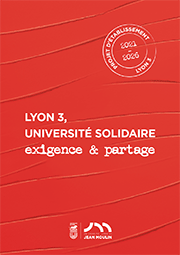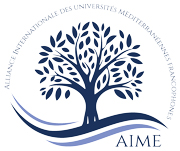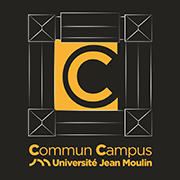AccueilRechercheProgrammes et productions scientifiquesThèsesThèses soutenuesThèses soutenues - 2006-2021Thèses soutenues - 2018
-
Partager cette page
- Recherche,
NI Jun
L'apprentissage du chinois chez les étudiants irlandais et leur adaptation interculturelle en Chine
Publié le 6 juillet 2018 – Mis à jour le 17 octobre 2018
Thèse en Études Transculturelles, soutenue le 5 juillet 2018.
L'objet de cette recherche porte sur l'apprentissage du chinois et l'adaptation interculturelle d'un groupe d'étudiants irlandais du supérieur en Chine.
Elle s'inspire du corpus de recherches sur l'adaptation interculturelle des étudiants étrangers du supérieur et vient s'y ajouter. Parmi ces recherches, celles de John W.Berry sur l'acculturation,
de Geert Hofstede sur les dimensions de la culture, la théorie de Young Y. Kim sur l'adaptation interculturelle, et la théorie de Kalervo Oberg sur le choc culturel ont été privilégiées.
L’objectif principal de cette recherche étant d’arriver à une meilleure compréhension de l'adaptation interculturelle d'étudiants irlandais qui étudient le mandarin en Chine, nous avons retenu les quatre questions de recherche suivantes:
1. Quel choc culturel les étudiants irlandais ont-ils vécu en Chine. Quelles difficultés ont-ils rencontrées? Quelles stratégies ont-ils exploitées pour les surmonter?
2. Quel type d'identité culturelle les étudiants irlandais ont-ils développé après leur séjour à l'étranger?
3. Quels facteurs ont facilité ou entravé leur adaptation interculturelle?
4. Quelles sont leurs expériences d'apprentissage de la langue chinoise en Chine?
Nous recourons à une méthodologie de recherche qualitative pour analyser vingt-quatre entretiens approfondis et six journaux écrits en Chine par les étudiants, afin de décrire l'adaptation interculturelle des étudiants irlandais en Chine.
Les principales conclusions de notre recherche sont les suivants:
1. Choc culturel
Les données montrent que même si ces étudiants s'étaient bien adaptés au pays d'accueil, ils avaient en majorité connu un certain choc culturel. Ils ont signalé divers niveaux de frustration et d'incompréhension découlant du fossé entre leur culture d'origine et celle du pays d’accueil. Ils ont également signalé des difficultés d'adaptation liées au mal du pays, à la solitude,, aux problèmes de pollution, d'hygiène alimentaire et à des difficultés de niveau linguistique.
Cependant, ils ont eu recours à leurs stratégies d'adaptation pour minimiser les effets du choc culturel.
. Identité et compétence interculturelle adoptées par les étudiants.
Les donnés révèlent le degré de réussite de l'adaptation interculturelle des étudiants irlandais qui étudient en Chine ainsi que les implications de ce phénomène sur la perception de leur identité culturelle.
Les étudiants ont procédé à des ajustements et sont devenus plus tolérants, plus larges d’esprit du point de vue interculturel.
3 – Acquisition de la langue
Les données suggèrent que ces étudiants irlandais ont amélioré leurs compétences linguistiques (écoute, parole, lecture et écriture) et communicationnelles (grammaticales, stratégiques et sociolinguistiques) grâce à leur immersion dans la langue et la culture cibles. Les étudiants profitent considérablement de l'apprentissage de la langue en milieu immersif particulièrement en ce qui concerne l'acquisition des compétences verbales et de vocabulaire et la conscience sociolinguistique.
4 – Facteurs qui facilitent ou entravent l'adaptation interculturelle des étudiants irlandais
Une recherche thématique des données a identifié six facteurs qui ont facilité l’adaptation interculturelle des étudiants: motivation, expériences interculturelles antérieures, soutien perçu, attitude intégrative et caractéristiques de la personnalité interculturelle.
Les facteurs qui entravent leur apprentissage de la langue et leur adaptation interculturelle sont : l’écart culturel, la bureaucratie et une perception de discrimination. Cette recherche suggère également que la compétence linguistique et l'utilisation de technologies modernes peuvent être à la fois des facteurs facilitant ou entravant l'acquisition de la langue et l'adaptation interculturelle.
Cette recherche, la première de ce genre en Irlande, permet une compréhension approfondie de l'adaptation interculturelle d'étudiants irlandais en Chine et constitue un complément utile à la recherche sur les programmes d'études à l'étranger en particulier dans le domaine de l'adaptation interculturelle.
This research presents an original qualitative study on Chinese language acquisition and the cross-cultural adaptation process of Irish university students studying Mandarin in China. It draws upon, and adds to, an existing body of research exploring intercultural adjustment of international students in higher education. Frameworks that inform this study include John W. Berry’s theory of acculturation, Geert Hofstede’s cultural dimensions theory, Young Y. Kim’s theory of cross-cultural adaptation, and Kalervo Oberg’s culture shock theory. The overall aim of this research is to develop a deeper understanding of intercultural adjustment of Irish students studying Mandarin in China. In order to fulfil this aim, the following four research questions were developed:
1. What culture shock has Irish university students experienced in China? What difficulties did these students encounter? What strategies did they employ to overcome these difficulties?
2. What kind of culture identity have the Irish students developed after their study-abroad in China?
3. What are their Chinese language learning experiences in China?
4. What are the facilitators of and hindrances to their intercultural adjustment process.
Using a thematic analysis approach, twenty-four in-depth interviews and six journals were analysed to produce findings grounded in Irish students’ cross-cultural adaptation experiences. This project’s four primary research findings are as follows:
Research finding 1 - Cultural shock experienced by Irish students
Data demonstrates that although these Irish students adapted successfully in the host country, the majority of the students experienced a certain degree of culture shock. Students reported various levels of frustration and misunderstanding arising from the mismatch of their own culture and that of the host culture. These students also encountered adjustment difficulties including: homesickness; loneliness; pollution and food hygiene problems; and difficulties with language. However, students utilized their coping strategies to minimize the effects of culture shock.
Research finding 2 - Intercultural identity and intercultural competence developed by Irish students
Data reveals the successful cultural adaptation of the Irish students studying abroad in China, with ensuing implications for the perception of their cultural identity. There was a positive adjustment by the Irish students who became more tolerant and open-minded, intercultural individuals.
Research finding 3 – Irish students’ language acquisition in China
Data suggests that Irish students increased their language proficiency (listening, speaking, reading, and writing) and communicative competence (grammatical, strategic, and sociolinguistic) as the result of immersion in the target language and culture. Students benefit considerably in the learning of the Chinese language in the immersive environment, particularly regarding oral skills, vocabulary, and sociolinguistic awareness.
Research finding 4 – Facilitators and hindrances to Irish students’ cross-cultural adjustment
Six facilitators were identified through a thematic analysis of the data: motivation; prior cross-cultural experiences; preparation; perceived support; integrative attitude; and intercultural personality characteristics. Three hindrances were identified: cultural distance, bureaucracy and perceived discrimination. This study also suggests that Chinese language proficiency and the use of modern technology can operate as both facilitators of and hindrances to language acquisition and cross-cultural adaptation.
Overall, this study brings a unique insight into the intercultural adjustment of Irish students studying in China and contributes to existing knowledge in the field of intercultural studies, targeting the specific area of cross-cultural adaptation.
Mots-clés :
étudiants irlandais, Université, L’apprentissage chinois, adaptation interculturelle
Keywords :
third level Irish students, learning Chinese, cross-cultural adaptation
Directeur(s).trice(s) de thèse : M. Grégory LEE
Elle s'inspire du corpus de recherches sur l'adaptation interculturelle des étudiants étrangers du supérieur et vient s'y ajouter. Parmi ces recherches, celles de John W.Berry sur l'acculturation,
de Geert Hofstede sur les dimensions de la culture, la théorie de Young Y. Kim sur l'adaptation interculturelle, et la théorie de Kalervo Oberg sur le choc culturel ont été privilégiées.
L’objectif principal de cette recherche étant d’arriver à une meilleure compréhension de l'adaptation interculturelle d'étudiants irlandais qui étudient le mandarin en Chine, nous avons retenu les quatre questions de recherche suivantes:
1. Quel choc culturel les étudiants irlandais ont-ils vécu en Chine. Quelles difficultés ont-ils rencontrées? Quelles stratégies ont-ils exploitées pour les surmonter?
2. Quel type d'identité culturelle les étudiants irlandais ont-ils développé après leur séjour à l'étranger?
3. Quels facteurs ont facilité ou entravé leur adaptation interculturelle?
4. Quelles sont leurs expériences d'apprentissage de la langue chinoise en Chine?
Nous recourons à une méthodologie de recherche qualitative pour analyser vingt-quatre entretiens approfondis et six journaux écrits en Chine par les étudiants, afin de décrire l'adaptation interculturelle des étudiants irlandais en Chine.
Les principales conclusions de notre recherche sont les suivants:
1. Choc culturel
Les données montrent que même si ces étudiants s'étaient bien adaptés au pays d'accueil, ils avaient en majorité connu un certain choc culturel. Ils ont signalé divers niveaux de frustration et d'incompréhension découlant du fossé entre leur culture d'origine et celle du pays d’accueil. Ils ont également signalé des difficultés d'adaptation liées au mal du pays, à la solitude,, aux problèmes de pollution, d'hygiène alimentaire et à des difficultés de niveau linguistique.
Cependant, ils ont eu recours à leurs stratégies d'adaptation pour minimiser les effets du choc culturel.
. Identité et compétence interculturelle adoptées par les étudiants.
Les donnés révèlent le degré de réussite de l'adaptation interculturelle des étudiants irlandais qui étudient en Chine ainsi que les implications de ce phénomène sur la perception de leur identité culturelle.
Les étudiants ont procédé à des ajustements et sont devenus plus tolérants, plus larges d’esprit du point de vue interculturel.
3 – Acquisition de la langue
Les données suggèrent que ces étudiants irlandais ont amélioré leurs compétences linguistiques (écoute, parole, lecture et écriture) et communicationnelles (grammaticales, stratégiques et sociolinguistiques) grâce à leur immersion dans la langue et la culture cibles. Les étudiants profitent considérablement de l'apprentissage de la langue en milieu immersif particulièrement en ce qui concerne l'acquisition des compétences verbales et de vocabulaire et la conscience sociolinguistique.
4 – Facteurs qui facilitent ou entravent l'adaptation interculturelle des étudiants irlandais
Une recherche thématique des données a identifié six facteurs qui ont facilité l’adaptation interculturelle des étudiants: motivation, expériences interculturelles antérieures, soutien perçu, attitude intégrative et caractéristiques de la personnalité interculturelle.
Les facteurs qui entravent leur apprentissage de la langue et leur adaptation interculturelle sont : l’écart culturel, la bureaucratie et une perception de discrimination. Cette recherche suggère également que la compétence linguistique et l'utilisation de technologies modernes peuvent être à la fois des facteurs facilitant ou entravant l'acquisition de la langue et l'adaptation interculturelle.
Cette recherche, la première de ce genre en Irlande, permet une compréhension approfondie de l'adaptation interculturelle d'étudiants irlandais en Chine et constitue un complément utile à la recherche sur les programmes d'études à l'étranger en particulier dans le domaine de l'adaptation interculturelle.
This research presents an original qualitative study on Chinese language acquisition and the cross-cultural adaptation process of Irish university students studying Mandarin in China. It draws upon, and adds to, an existing body of research exploring intercultural adjustment of international students in higher education. Frameworks that inform this study include John W. Berry’s theory of acculturation, Geert Hofstede’s cultural dimensions theory, Young Y. Kim’s theory of cross-cultural adaptation, and Kalervo Oberg’s culture shock theory. The overall aim of this research is to develop a deeper understanding of intercultural adjustment of Irish students studying Mandarin in China. In order to fulfil this aim, the following four research questions were developed:
1. What culture shock has Irish university students experienced in China? What difficulties did these students encounter? What strategies did they employ to overcome these difficulties?
2. What kind of culture identity have the Irish students developed after their study-abroad in China?
3. What are their Chinese language learning experiences in China?
4. What are the facilitators of and hindrances to their intercultural adjustment process.
Using a thematic analysis approach, twenty-four in-depth interviews and six journals were analysed to produce findings grounded in Irish students’ cross-cultural adaptation experiences. This project’s four primary research findings are as follows:
Research finding 1 - Cultural shock experienced by Irish students
Data demonstrates that although these Irish students adapted successfully in the host country, the majority of the students experienced a certain degree of culture shock. Students reported various levels of frustration and misunderstanding arising from the mismatch of their own culture and that of the host culture. These students also encountered adjustment difficulties including: homesickness; loneliness; pollution and food hygiene problems; and difficulties with language. However, students utilized their coping strategies to minimize the effects of culture shock.
Research finding 2 - Intercultural identity and intercultural competence developed by Irish students
Data reveals the successful cultural adaptation of the Irish students studying abroad in China, with ensuing implications for the perception of their cultural identity. There was a positive adjustment by the Irish students who became more tolerant and open-minded, intercultural individuals.
Research finding 3 – Irish students’ language acquisition in China
Data suggests that Irish students increased their language proficiency (listening, speaking, reading, and writing) and communicative competence (grammatical, strategic, and sociolinguistic) as the result of immersion in the target language and culture. Students benefit considerably in the learning of the Chinese language in the immersive environment, particularly regarding oral skills, vocabulary, and sociolinguistic awareness.
Research finding 4 – Facilitators and hindrances to Irish students’ cross-cultural adjustment
Six facilitators were identified through a thematic analysis of the data: motivation; prior cross-cultural experiences; preparation; perceived support; integrative attitude; and intercultural personality characteristics. Three hindrances were identified: cultural distance, bureaucracy and perceived discrimination. This study also suggests that Chinese language proficiency and the use of modern technology can operate as both facilitators of and hindrances to language acquisition and cross-cultural adaptation.
Overall, this study brings a unique insight into the intercultural adjustment of Irish students studying in China and contributes to existing knowledge in the field of intercultural studies, targeting the specific area of cross-cultural adaptation.
Mots-clés :
étudiants irlandais, Université, L’apprentissage chinois, adaptation interculturelle
Keywords :
third level Irish students, learning Chinese, cross-cultural adaptation
Directeur(s).trice(s) de thèse : M. Grégory LEE
Membres du jury :
M. Grégory LEE, Professeur des universités, Université Jean Moulin Lyon 3,
Mme Hongling LIANG, Lecturer, University of Glasgow, Écosse,
Mme Lu SHI, Professeur des universités, Université de Lille,
M. Liming WANG, Professor, University College Dublin, Irlande
Président.e du jury : Mme Lu SHI
Equipe d'accueil : IETT
Mme Hongling LIANG, Lecturer, University of Glasgow, Écosse,
Mme Lu SHI, Professeur des universités, Université de Lille,
M. Liming WANG, Professor, University College Dublin, Irlande
Président.e du jury : Mme Lu SHI
Equipe d'accueil : IETT
Décision : Admise
Documentation
Mise à jour : 17 octobre 2018







